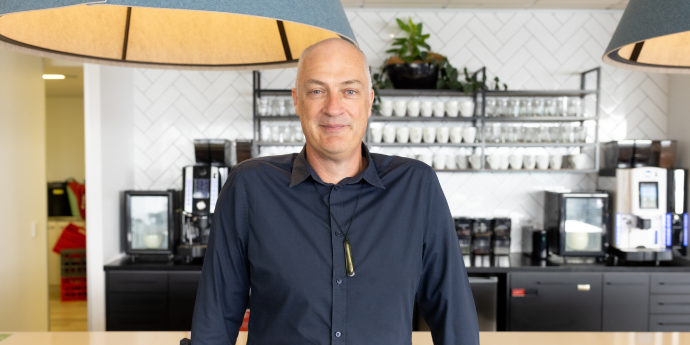What I’m Reading – Debbie Ireland
What does it really mean to feel a sense of belonging and how can it boost performance and inclusion in business?

‘What I’m Reading’ is a new series that looks at the business and governance books on your radar.
David Downs CMInstD is CEO of The New Zealand Story, which promotes Aotearoa’s reputation and value internationally and provides storytelling resources to exporters.
David’s governance expertise sits in the realm of tech, business growth and international business. He is currently chair of business consultancy, The Icehouse, health funder Well Foundation and tech industry body, NZ Hi-Tech Trust. David also sits on the boards of Venture Taranaki, Business Events Industry Aotearoa, Young Enterprise Trust and the Department of Internal Affairs executive advisory committee.
Spending so much time travelling for work, you’re likely to find David in the Koru Lounge, and when we caught up with him to find out what he’s been reading, he was jetting his way back to New Zealand on a return flight from China as part of the Prime Minister’s trade delegation.
I just finished Superforecasting: The Art and Science of Prediction by Philip E Tetlock and Dan Gardner. I listened to the audiobook, which I often do now so that I can listen while I’m out walking or on the bus.
It’s an accessible book; a nice mix of stories and examples with theory and strategy. Not too dry or complex.
As a director, we are often trying to predict the future, or at least to understand the possible alternatives coming at us. This book helps outline some of the techniques through which the best forecasters develop their predictions. It’s trying to put some science into the guesswork.
The idea that research and data can really contribute to improved forecasts – the book shows that the best forecasters surround themselves in data and information, and constantly seek out facts that might show they are wrong (which is a good thing!).
I’ve always thought that a good board meeting should be grounded in data and that, as board, directors have to learn how to sift through that to find the insights.
Data. Dashboards. Show me the figures.
I try to read (or listen) as much as I can – it’s key to growing your perspective and challenging your assumptions. I wish I could download books into my brain, though, as I often find myself nodding off on the rare occasions I get to just sit and read.
It’s a good book, but there are others you should read first if you’re earlier in your career. Good to Great by Jim Collins, What got you here won’t get you there, by Marshall Goldsmith, and The Lorax by Dr Seuss, should be compulsory reading for any board.
Science and tech books. It drives my wife crazy. I am quite happy sitting in bed and reading a textbook or a manual. I also love the writing of Simon Winchester and just finished his latest book, Land, which I highly recommend – sort of a history of human’s relationship with the idea of land as property, including a really interesting chapter on New Zealand.
How to deal with the increasing pace of change and uncertainty in our external environments, and how organisations can pivot or adapt quickly, without causing chaos or indecision.
That humans can read the same information and have very different interpretations of what it is saying. On one hand that’s baffling, and on the other it shows why we need varying perspectives and a diversity of people at the table.
Humour. I think we too often mistake being serious with being solemn. The best board meetings I’ve had were ones that had a healthy dose of laughing to change the mood.
If there is a book on your radar that you’d like to share, send an email to: Sonia.yee@iod.org.nz